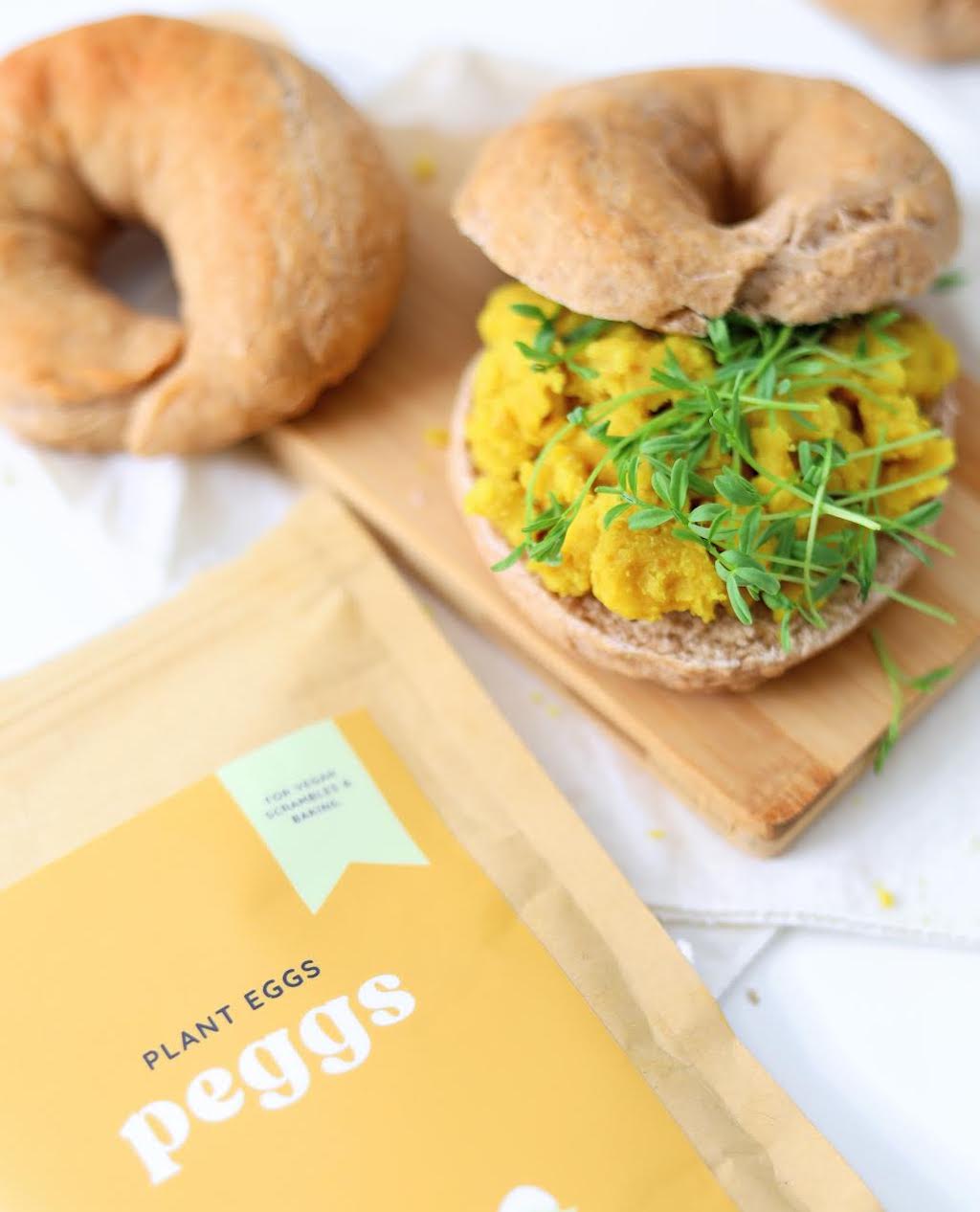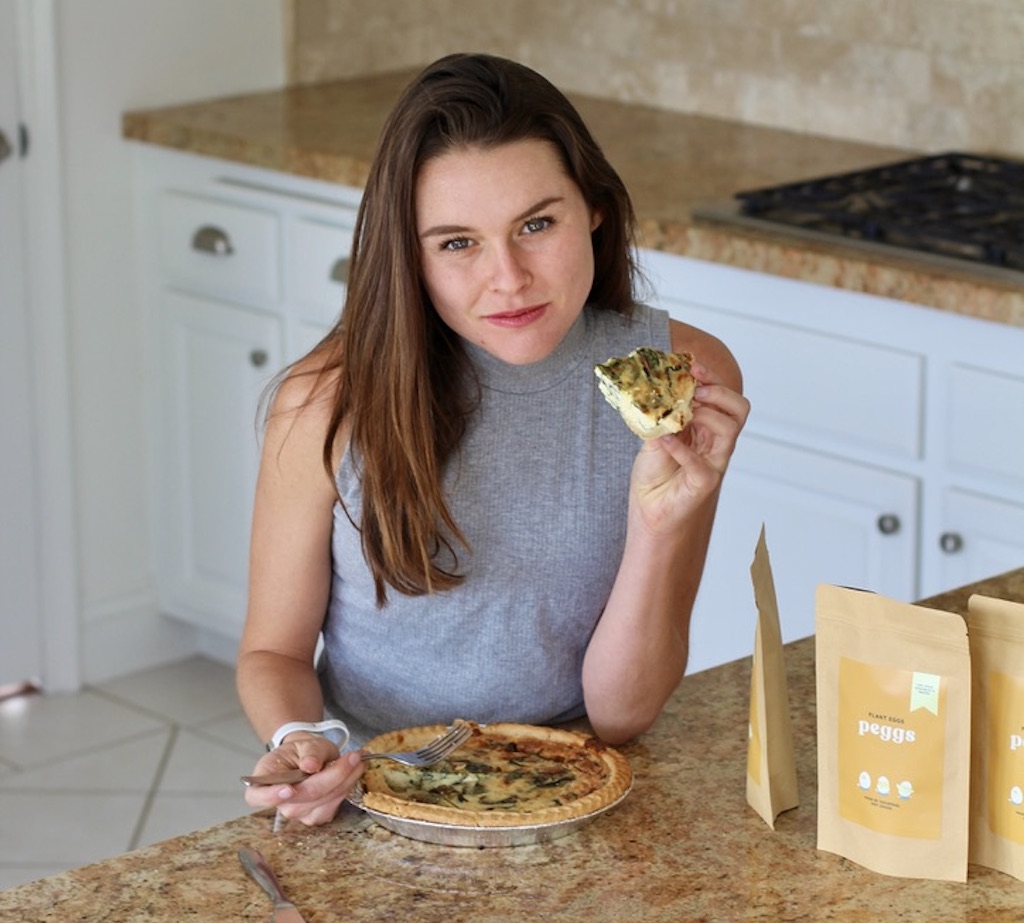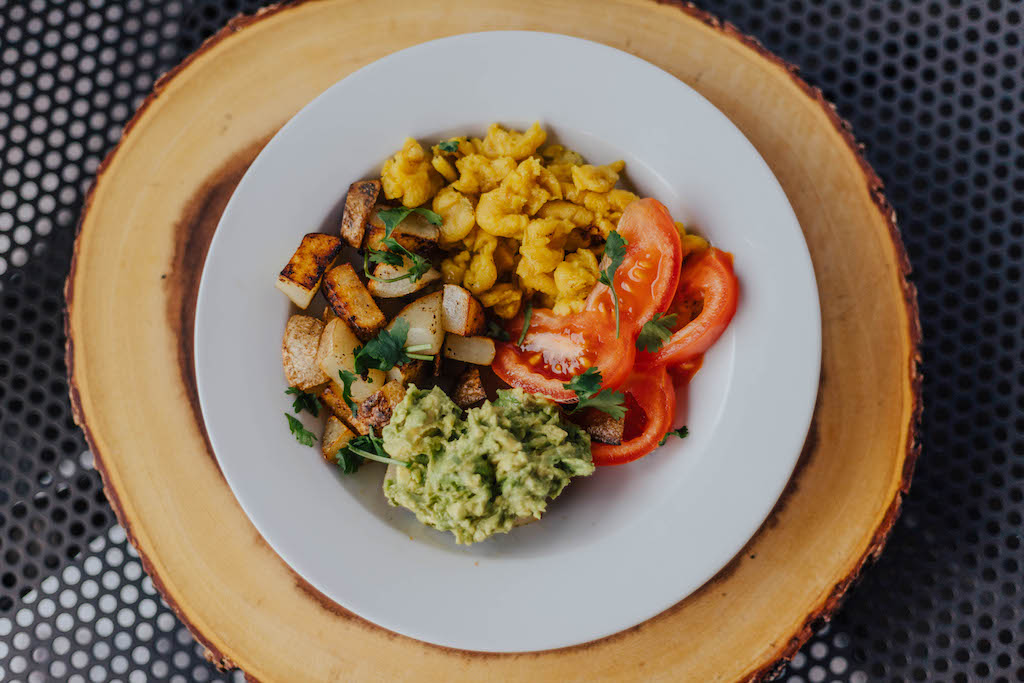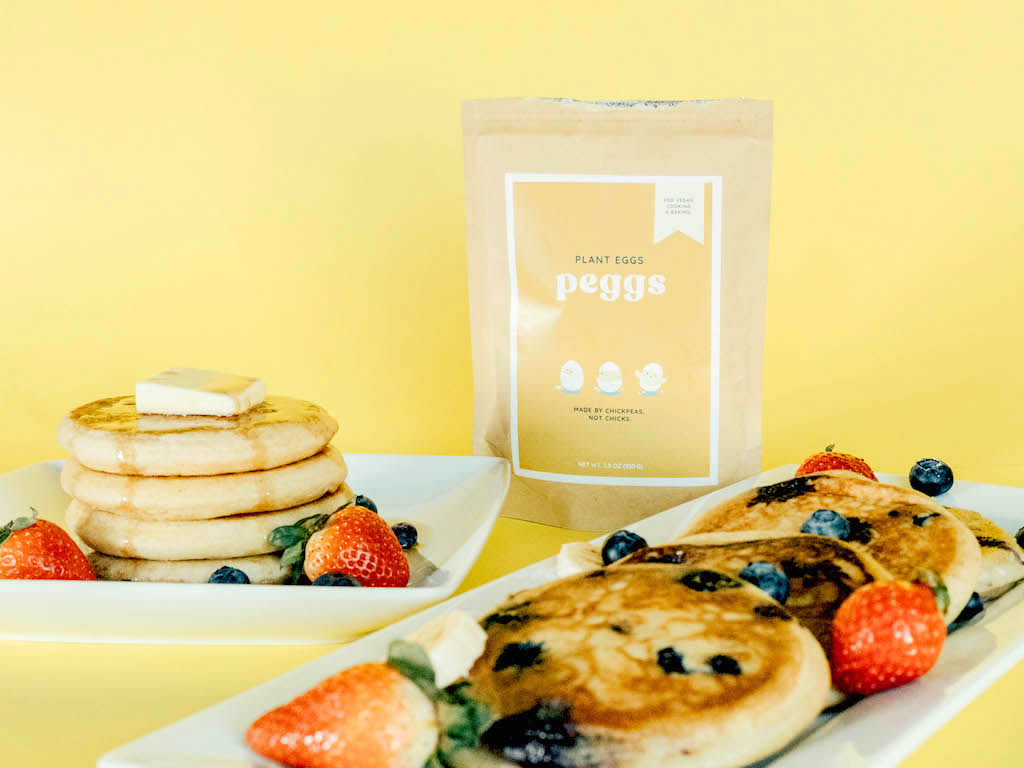4 Mins Read
Learning about how adopting plant-based diets was one of the most impactful things individuals could do to reduce their carbon footprint during her college studies made Grace O’Brien want to go vegan. But there was just one food she loved, craved and could never replace: eggs. Then the pandemic hit, and like most experiencing quarantine, the Stanford graduate suddenly had a lot more time on her hands. That’s when she came up with Peggs.
“Peggs was born during the pandemic in my kitchen because I wanted to make one of my favorite foods more sustainable,” O’Brien explains. “I researched eggs: their functional properties, their alternatives, their nutritional breakdown. I tinkered with hundreds of variations in my home kitchen.”
After lots of experimentation, the young entrepreneur came up with her ultimate recipe, which she says works in a number of cuisines and applications, from good ol’ scrambled eggs to french toast, muffins and brownies. The final product, which comes in a powder form that can be mixed with water, is made from a base of chickpeas, and other plant-based ingredients like potato starch, flaxseed, nutritional yeast, black salt and spices.
I researched eggs: their functional properties, their alternatives, their nutritional breakdown. I tinkered with hundreds of variations in my home kitchen.
Grace O’Brien

This recipe is now being turned into a fully-fledged brand, with O’Brien launching Peggs via a Kickstarter campaign to raise the capital to commercialise it.
“I’m a new grad, running this business from my own savings: I need help from the community to start manufacturing it.” The aim is to raise around US$35,700, which will help take her operation out of her kitchen into a professional food packing plant.
O’Brien says that she hopes not only to satisfy the cravings of plant-based folk who miss their favourite omelette, but also to help make an impact and reduce the amount of resources that goes into farming eggs, not to mention the ethical issues associated with the majority of the world’s eggs produced in factory farms.
Every dozen of eggs that are swapped out for Peggs will translate into environmental savings of 500 gallons of water and one kilograms of carbon dioxide emissions.

“Food is one of the most critical ways we can fight climate change,” O’Brien says. “Peggs use 90% less land, water, and energy to produce and contribute to 50% fewer greenhouse gas emissions.”
Food is one of the most critical ways we can fight climate change.
Grace O’Brien
Unlike other plant-based egg substitutes on the market that come in liquid form, such as the pioneering JUST Egg made by San Francisco food tech Eat Just, O’Brien believes that her powdered format ticks another box in terms of sustainability because it is shelf-stable, reducing the food waste that often comes from spoilage due to lack of refrigeration. Peggs also happens to have a longer shelf life too, which gives it an edge over conventional eggs, with one in every dozen in the U.S. thrown away due to expiration.
Read: Meet these food tech pioneers who are making eggs from plants

One more thing that could make her brand stand out in the fast-growing plant-based category is her clean ingredient label, which she describes as “made in a kitchen, not a lab” – something that increasingly health-conscious consumers are looking for.
“Many alternative proteins are created in a lab with unrecognisable ingredients. I strived to make a product with clean ingredients that people can pronounce and trust.”
If the Kickstarter is successful, O’Brien says that she plans to gain accreditation from vegan and allergen-free certification bodies, as well test on nutritional and shelf life performance. She’ll also work with food scientists to further perfect her recipe.
“We’ll make Peggs cook and taste even more like real eggs, while keeping their ingredients clean.”
All images courtesy of Peggs.




